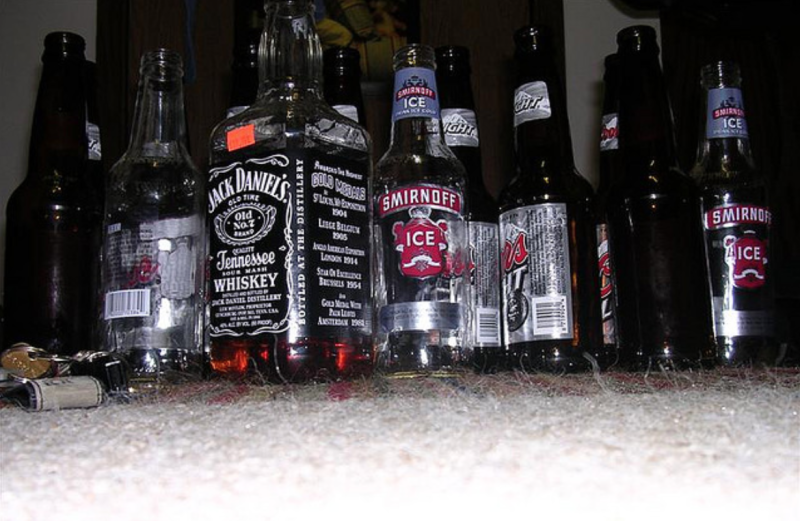While alcohol use among youth has been falling in recent years, binge drinking –- downing five or more drinks in two hours -- is still common. Teen binge drinking rates are so high, and the consequences so serious, that the American Academy of Pediatrics has issued a new report to help physicians spot and care for young drinkers.
To increase the chances of identifying at-risk youth, says Siqueira, the report’s lead author, doctors should screen every child in their practice for alcohol use, starting at age nine.
A troubling trend
Most young people in the United States do not drink alcohol, but those who do are more likely than adults to drink heavily.
Many of the defining traits of adolescence –- a strong desire to fit in with peers, seek novel experiences and test limits –- make this tumultuous passage a prime time for flirting with substance use. And for most teens, alcohol is the substance of choice.
People dealing with increased stress are at higher risk for using drugs or alcohol as a coping mechanism, says Bonnie Halpern-Felsher, director of research in the division of adolescent medicine at Stanford University. “Going back to school, especially for those taking difficult classes or thinking about college, can enhance stress.”
The AAP report was published Monday in the journal Pediatrics. It draws on several national studies of youth drinking behavior which show that binge drinking rates increase with age and rise sharply in high school:
- 21 percent of kids admit to having tried alcohol before 8th grade
- 79 percent of kids admit to having tried alcohol by 12th grade
- 14.2 percent of 12- to 20-year-olds say they engaged in binge drinking in 2013
- 36 to 50 percent of high school students drink alcohol; 28 to 60 percent of them admit to binge drinking and nearly two-thirds have done so more than once in a month
- 10 percent of high school seniors say they’ve had more than 10 drinks in a row
Studies of adolescent binge drinking may underestimate its impacts, the report warns, because the cutoff of five or more drinks in two hours is based on adult males.
Uniquely vulnerable
Binge drinking is particularly risky for teens because they are not little adults, says Siqueira. “Volume for volume, they’re far more likely to get intoxicated than you and I, so it can be very dangerous.”
Adolescents undergo many rapid physical and mental changes that make them more open to trying alcohol even as their still-developing bodies and brains are more vulnerable to its effects.
Even one binge-drinking episode can result in death, either from alcohol poisoning or injuries sustained while engaging in risky behavior. Alcohol is associated with suicide, homicide and car crashes -- the leading causes of death for teenagers. Nearly a third of fatal auto accidents among 15- to 20-year-olds involve alcohol.
Teen binge drinkers are also more likely to do poorly in school, have sex earlier, acquire sexually transmitted diseases from unprotected sex and fall prey to sexual violence during a drinking episode.
Heavy drinking poses long-term risks, too. Alcohol exposure during adolescence, when connections between different brain regions are still forming, can lead to chronic problems with learning and memory and may increase susceptibility to addiction: kids who start drinking before age 15 are four times as likely to become alcohol dependent than those who start after age 20. Young binge drinkers are also at risk for developing multiple chronic conditions later in life, including cancer and liver disease.
For children with chronic medical conditions, alcohol can make them prone to skipping their medications, according to a new study, also published Monday in Pediatrics. More than a third of high school students with diabetes, asthma or other chronic conditions use alcohol, the study found, and are less likely to take their medicine.
Report Recommends New Tool for Doctors
Impulsive people who like to chase thrills are at high risk for substance abuse. But for kids, these traits may have more to do with an immature brain than a reckless nature. Younger kids and late bloomers may be more likely to try alcohol without considering the consequences.
Yet doctors often mistakenly assume kids aren’t using alcohol, says Siqueira. That’s why the report recommends making a tool designed to spot alcohol use in kids part of routine checkups.
Giving health care providers specific questions to ask kids about how much they’re drinking, who they’re drinking with and when they’re drinking is particularly helpful, says Halpern-Felsher. Doctors can use that information to provide referrals, treatment and especially positive feedback, she says. “You want to say, ‘I’m glad you’re not drinking. That’s a great decision.’ ”
Preventing alcohol use is far more effective than starting intervention once a problem is spotted, and parents play a critical role in prevention: 80 percent of teens say their parents are the biggest factor in deciding whether to drink.
Siqueira encourages parents to view pediatricians as partners by giving them the chance to talk privately with a child. Children may be more likely to open up when they aren’t afraid of being judged.
To counter the ubiquity of alcohol advertising -– especially brands that cater to teens with fruit-flavored concoctions and pretty little bottles –- experts say it’s important for parents to talk to their children as early as possible.
Too often, parents of kids hospitalized for intoxication feel relieved to learn that “it’s only alcohol” and not drugs, says Siqueira. But she thinks that’s a dangerous reaction.
